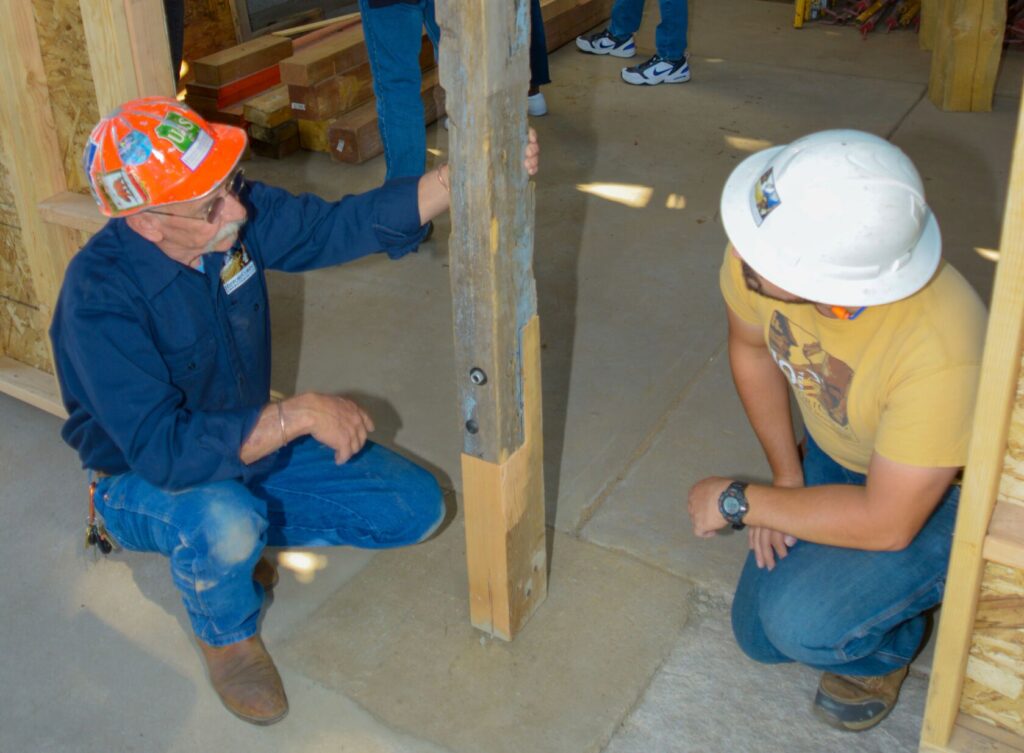Colorado Democrats advance revised version of wages bill Gov. Jared Polis vetoed last year
A revamped, omnibus version of legislation dealing with wages that the governor vetoed last session cleared its first committee on Thursday — but not without objections from Republicans and businesses worried about trivial lawsuits.
House Bill 1001, sponsored by Majority Leader Monica Duran, D-Wheat Ridge, and Rep. Meg Froelich, D-Englewood, expands upon their bill from last year, which only covered wage claims by construction contractors. This year, the measure encompasses all industries, and eliminates a component requiring general contractors to pay lost wages of subcontractors that caused the veto last year.
This year’s bill makes several changes to Colorado’s process for claiming unpaid wages, including:
-
Fining employers found guilty of misclassifying employees as contractors, which supporters say is done to avoid having to provide workers with benefits and workers’ compensation
-
Amending the definition of “employer” for wage and hour laws to include individuals who own a 25% or higher share of the company
-
Requiring the Colorado Department of Labor and Employment (CDLE) to create a website listing employers found to have willfully withheld wages
-
Allowing the Division of Labor Standards and Statistics to waive the penalty for an employer’s failure to pay claimed wages if certain conditions were met
-
Classifying using a worker’s immigration status to impede on their wage and hour law rights as an unlawful act of intimidation, threatening, coercion, discrimination, and retaliation
-
Increasing the maximum amount of compensation for CDLE wage theft claims from $7,500 to $13,000
-
Allowing employees alleging wage theft to seek financial damages in court
-
Expanding the authority of the state labor agency to investigate wage theft claims
Duran said she and her cosponsors have worked with Polis and other stakeholders to ensure the bill has their support.
“We continue to have this conversation each session regarding our workers not getting paid, and I think it’s really important to note that each year we will come back, each session we will come back, to make things right,” she said. “I’m asking for support for this bill because it’s the right thing to do. It’s about our workers who are day in and day out doing the work that we can’t do so that we can be out here doing the work that we’re doing.”
Businesses worry about companies that make ‘honest mistakes’
A representative of the National Federation of Independent Business said wage theft is immoral and when it happens, a business needs to face the music.
But Michael Smith said his group is worried about the bill’s potential impact on employers who make honest mistakes.
“Although I recognize there are bad actors, the vast majority of small businesses owners abide by the law and typically find a way to pay their employees before themselves,” he said.
Most small businesses don’t have compliance or human resources departments to make sure they’re up to date on the latest regulations and properly classifying employees, he said.
The proposal would make those companies vulnerable to trivial lawsuits, he said.
The restaurant industry would be hit particularly hard by this legislation, added Colorado Restaurant Association president and CEO Sonia Riggs.
Some 70% of restaurants in Colorado are independently owned, and most are still struggling to get back on their feet after the pandemic.
“Restaurants are having a hard time right now just keeping their doors open, and this bill makes operating even harder,” she said. “If this bill passes into law, more restaurants will close and more Coloradans will lose the great-paying, flexible jobs they love.”
Riggs is also concerned with the bill’s proposed change to the definition of “employer.”
She said most investors, especially those who only own a quarter of the business, are unaware of day-to-day operations and instances of wage theft. Restaurant pay models can be complicated, and employees who don’t understand how tip credits work or that taxes are withheld from their paychecks may be inclined to bring forward unnecessary lawsuits.
Workers say they’ve been deprived of proper wages
“Luis,” who submitted a written testimony that was read by Luis Silva of the Western States Regional Council of Carpenters, alleged being owed nearly $7,000 by his former employer.
In his testimony, Luis said he worked for a drywall company in 2019, doing metal framing on an apartment complex in Boulder, and was never paid.
“I barely had money for food,” he said. “There was times I had to decide between buying something to eat or putting gasoline in my truck so I can keep looking for work.”
The Regional Council of Carpenters helped Luis file a complaint with the state agency, but he still has yet to see any of his money.
“This type of labor abuse is very common in the state of Colorado,” Luis said. “There is many workers, especially immigrants, that are being exploited — no overtime pay, no breaks or lunch time, and a lot of times, they’re not even paid. This has to stop. We need change in the state of Colorado. We need stricter laws that will protect the workers and make sure that contractors pay for our work and time.”
Erica Leon, who spoke on behalf of Magali Gutierrez Lanzas, said the latter is owed $2,500 by her former employer.
Gutierrez Lanzas worked 12-hour days, only to be told time and time again that her boss couldn’t pay her because she hadn’t yet received the money from her own boss, according to Leon. There were times when Lanzas didn’t have enough money to pay for the medication and tests she needed for her heart condition, and she eventually lost her home because she couldn’t pay rent, Leon said. Lanzas filed a complaint with the Department of Labor but was told it could take over six months to resolve.
“For people who live day to day without income, the fact that the process takes so long affects us,” Leon said, reading from Lanzsas’ testimony.
Scott Moss, director of CDLE’s Division of Labor Standards and Statistics, said the bill makes no changes to the state’s wage and hours statutes – but it strengthens their enforcement. The bill would benefit both workers and businesses, he said, because when wage law violations become widespread enough to impact the labor market, businesses have two choices — lose out to competitors who illegally lower costs by not paying employees or commit wage theft themselves to stay afloat.
“Effective enforcement prevents that race to the bottom,” Moss said.
Businesses shouldn’t be concerned about the bill, Moss added, because CDLE sides with employers in about three-quarters of all wage theft investigations.
While employees can choose to bring wage theft claims before small claims courts, filing through CDLE means they won’t have to pay to file that claim and will receive a full investigation, according to Moss. Employers also benefit from going through CDLE rather than a court, because if this bill passes, they may not have to pay any penalties if they pay back all wages owed, Moss said.
The bill’s sponsors sought to counter testimony that the legislation would lead to public shaming of employers who make honest mistakes. The opposite is true, argued Froelich. All of this information is already available online, but the bill would amend the CDLE website to only include employers found to have willfully engaged in wage theft, removing all others not found liable.
Duran said “public shaming” is the least of her concerns.
“We should be worrying about the workers who are being evicted because their employers didn’t pay them and they missed rent or paying their utility bills,” she said.
Froelich stood by the bill’s provision about partial owners, saying the latter would only be liable if the other business owners are found guilty of wage theft and refused to pay.
“Obviously, if you’re a 25% owner of a company making a profit off of wage theft, then you should also be held liable,” she said.
Several Republicans on the Business Affairs and Labor Committee said that while they appreciate the bill’s intent, they are concerned about some of its provisions and its hefty fiscal note, which predicts more than $280,000 in state expenditures for Fiscal Year 2025-2026 and nearly $650,000 for the following year.
The bill had “good bill potential,” said Rep. Rebecca Keltie, R-Colorado Springs, but she argued it goes a little too far and she is concerned about its unintended consequences.
According to sponsors, several amendments are in the works but are not yet finished. Some committee members expressed that they would be more willing to vote in favor of the bill once they have seen those amendments.
The bill passed with an 8-5 party line vote. It is sponsored in the Senate by Democratic Senators Jessie Danielson of Wheat Ridge and Chris Kolker of Centennial.











